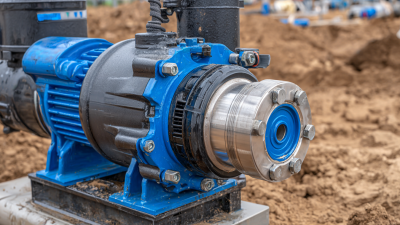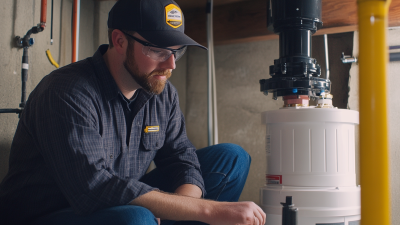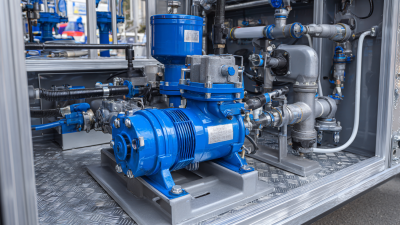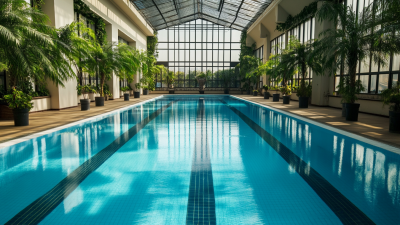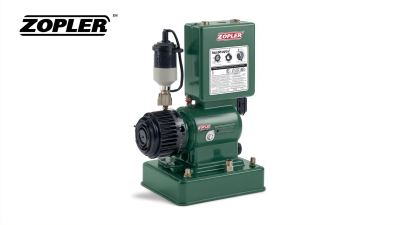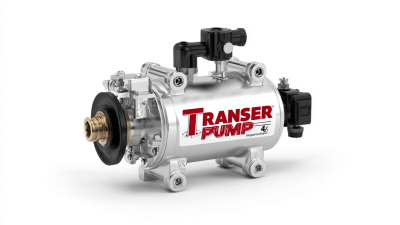


As energy efficiency becomes an increasingly critical focus in both residential and commercial settings, Mitsubishi Heat Pumps have emerged as a leading solution in the market, offering significant advancements in technology and performance. According to the U.S. Department of Energy, heat pumps can reduce energy consumption by up to 50% compared to traditional heating systems, making them a financially savvy choice for homeowners and businesses alike. Furthermore, the Energy Information Administration reports that the adoption of energy-efficient heat pump systems is projected to grow by over 30% in the next five years, highlighting the urgency for consumers to consider modern alternatives. This ultimate guide will explore how Mitsubishi Heat Pumps not only enhance energy efficiency but also provide insights and data on optimizing their use, ensuring that you maximize both comfort and savings in your space.

Mitsubishi heat pumps represent a significant advancement in energy-efficient heating and cooling solutions. These systems utilize a design that can transfer heat even in low temperatures, making them ideal for various climates. According to the U.S. Department of Energy, heat pumps can reduce energy consumption by 30-40% compared to traditional heating systems, demonstrating their ability to deliver substantial cost savings and environmental benefits.

In addition to their efficiency in energy use, Mitsubishi heat pumps are recognized for their impressive performance ratings. The Air-Conditioning, Heating, and Refrigeration Institute (AHRI) reports that many Mitsubishi models achieve a Seasonal Energy Efficiency Ratio (SEER) rating above 20, which is significantly higher than the minimum required standards. This efficiency not only translates to lower energy bills but also aligns with industry goals to reduce greenhouse gas emissions by promoting cleaner technologies in residential and commercial applications. As energy costs rise and climate concerns grow, Mitsubishi heat pumps provide a compelling option for consumers looking to maximize energy efficiency in their homes and businesses.
When it comes to optimizing the performance of Mitsubishi heat pumps in residential settings, several key strategies can significantly enhance energy efficiency. According to the U.S. Department of Energy, heat pumps can reduce electricity use by up to 50% compared to traditional heating systems when properly sized and installed. Homeowners should consider conducting a thorough load calculation to ensure their system is appropriately matched to their specific heating and cooling needs, which is critical for maximizing efficiency.
Additionally, regular maintenance plays a vital role in maintaining optimal performance. A study by the Air-Conditioning, Heating, and Refrigeration Institute (AHRI) emphasizes that routine checks can improve energy efficiency by as much as 20%. Simple tasks such as cleaning or replacing filters, checking for duct leaks, and ensuring proper refrigerant levels can significantly impact the overall functionality and energy consumption of Mitsubishi heat pumps.
Another effective strategy is to leverage advanced control technologies, such as smart thermostats. Research indicates that integrating smart technology can result in energy savings of approximately 10-15%. By allowing homeowners to program their heating schedules and adjust settings remotely, these devices facilitate more precise control over energy usage, ensuring that heat pumps operate efficiently without unnecessary energy waste. Implementing these strategies can lead to substantial savings and enhanced comfort in residential applications.
| Strategy | Benefit | Estimated Energy Savings (%) | Implementation Difficulty | Best For |
|---|---|---|---|---|
| Regular Maintenance | Ensures optimal performance | 10-15% | Low | All Homeowners |
| Proper Sizing | Increases system efficiency | 15-20% | Medium | New Installations |
| Zone Control Systems | Reduces energy waste | 20-25% | High | Larger Homes |
| Smart Thermostats | Optimizes heating/cooling schedules | 10-30% | Medium | Tech-Savvy Homeowners |
| Duct Sealing | Prevents air leaks | 15-20% | Medium | Homes with Ductwork |
When it comes to energy efficiency in heating systems, Mitsubishi heat pumps present a compelling alternative to conventional heating systems. According to the U.S. Department of Energy, heat pumps can be up to 300% more efficient than traditional gas or electric heating systems, which typically range between 80% to 95% efficiency rates. This remarkable efficiency stems from their ability to transfer heat rather than generate it, making them particularly advantageous in moderate climates where they can operate effectively year-round.
Furthermore, a comparative analysis by the American Council for an Energy-Efficient Economy indicates that homes equipped with Mitsubishi heat pumps can save homeowners an average of 30% on their heating bills compared to those using conventional systems. Additionally, Mitsubishi’s technology incorporates variable speed compressors, which adjust to the home’s heating needs, further optimizing energy consumption. With rising energy costs and a growing emphasis on sustainability, transitioning to Mitsubishi heat pumps not only enhances home comfort but also represents a significant step toward reducing environmental impact.
This chart illustrates the Annual Energy Efficiency Ratio (EER) for different heating systems, highlighting the superior efficiency of Mitsubishi Heat Pumps compared to conventional gas and electric resistance heaters.
As energy efficiency continues to gain traction, real-world success stories illustrate the effectiveness of advanced heating solutions. Between 2024 and 2025, a significant investment of £107.7 million in grants and loans was directed towards energy efficiency initiatives, highlighting a robust commitment to low carbon heat technologies. Case studies demonstrate how these investments are being utilized to install energy-efficient heating systems, maximizing the benefits of modern heat pump technology.
One notable case involved a community project that adopted a cutting-edge heating solution, resulting in an impressive 40% reduction in energy consumption. This transformation was made possible through a combination of government funding and strategic partnerships, showcasing how collaborative efforts can lead to meaningful improvements in energy efficiency. Similar projects have reported lower carbon emissions and decreased dependency on traditional heating sources, solidifying the role of heat pumps in achieving net-zero targets.
Moreover, according to industry reports, buildings equipped with advanced heating systems can realize significant savings on energy bills, with some cases reporting annual savings exceeding £1,500. These financial benefits, coupled with the environmental advantages, underline the potential for widespread adoption of energy-efficient technologies in homes and businesses alike.
As the demand for energy efficiency continues to rise, heat pump technology is evolving rapidly, offering innovative solutions that significantly impact energy conservation strategies. Emerging trends indicate a shift towards smarter heat pumps, which integrate advanced sensors and IoT connectivity for optimal performance. These smart systems not only monitor energy consumption in real time but also adapt to users’ habits, maximizing efficiency while minimizing waste.
Tip: When considering a heat pump installation, look for models with advanced features such as variable-speed compressors. These units can adjust their operational speed based on the heating or cooling demand, leading to reduced energy consumption and lower utility bills.

Another pivotal trend is the enhancement of renewable energy integration within heat pump systems. With the increasing affordability and efficiency of solar energy, hybrid systems that combine solar panels with heat pumps are becoming more common. This synergy allows homeowners to harness the sun’s energy to power their heating and cooling needs, ultimately reducing their carbon footprint.
Tip: If you're exploring heat pump options, investigate available rebates or incentives for renewable energy systems in your area. These financial benefits can make transitioning to a more efficient heating and cooling solution more accessible and affordable.
